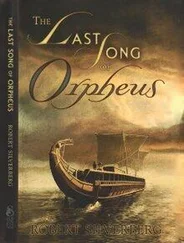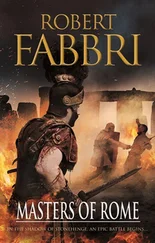Robert Fabbri - Rome's lost son
Здесь есть возможность читать онлайн «Robert Fabbri - Rome's lost son» весь текст электронной книги совершенно бесплатно (целиком полную версию без сокращений). В некоторых случаях можно слушать аудио, скачать через торрент в формате fb2 и присутствует краткое содержание. Год выпуска: 2015, ISBN: 2015, Издательство: Atlantic Books, Жанр: Исторические приключения, на английском языке. Описание произведения, (предисловие) а так же отзывы посетителей доступны на портале библиотеки ЛибКат.
- Название:Rome's lost son
- Автор:
- Издательство:Atlantic Books
- Жанр:
- Год:2015
- ISBN:9780857899668
- Рейтинг книги:5 / 5. Голосов: 1
-
Избранное:Добавить в избранное
- Отзывы:
-
Ваша оценка:
- 100
- 1
- 2
- 3
- 4
- 5
Rome's lost son: краткое содержание, описание и аннотация
Предлагаем к чтению аннотацию, описание, краткое содержание или предисловие (зависит от того, что написал сам автор книги «Rome's lost son»). Если вы не нашли необходимую информацию о книге — напишите в комментариях, мы постараемся отыскать её.
Rome's lost son — читать онлайн бесплатно полную книгу (весь текст) целиком
Ниже представлен текст книги, разбитый по страницам. Система сохранения места последней прочитанной страницы, позволяет с удобством читать онлайн бесплатно книгу «Rome's lost son», без необходимости каждый раз заново искать на чём Вы остановились. Поставьте закладку, и сможете в любой момент перейти на страницу, на которой закончили чтение.
Интервал:
Закладка:
‘However, I shall g-g-g-go further than that,’ Claudius went on. ‘I p-p-publicly thank my adopted son, Nero, for being pr-pr-prepared to shoulder the responshibilities of my office had I been called to the F-f-f-ferryman; but now ash my natural son, Britannicush, approaches the time when he shall take the toga virilish, Nero has no need to worry himself about taking on the onerous tasks of the Pr-pr-pr-princeps. I release him from that duty with my gratitude and I know that as my adopted son and son-in-law he will support Britannicus when the time comes and be a shoulder of strength for him to lean on.’
Claudius paused again, no doubt thinking that there should be some acknowledgement of the fair and just sentiments that he had expressed. However, there was nothing but a low mumbling as men checked with their neighbours that they had heard correctly.
‘I think the time is coming very, very soon,’ Gaius muttered.
Vespasian just stared at the fool on the curule chair as he continued to hasten his own death by an ill-judged, drunken speech; Gaius had not exaggerated Claudius’ mental decline.
‘That b-b-b-being the case, I feel that it would be right of me to d-divorce my wife, Agrippina, and replace her with someone lessh partial to also act as a guide for Britannicus after I am gone, so I would ask you, C-c-c-consh-script Fathers, to put your minds to thinking of a suitable candidate; someone of high birth, with intelligence, feminine skills and b-b-beauty would pleashe me.’
‘I can almost hear the sound of Agrippina mixing her potions,’ Vespasian whispered.
‘This must be the longest suicide note in history,’ Gaius ventured, staring with barely concealed incredulity at Claudius.
‘I would also ask you, C-c-conscript Fathers, to conshider what rewards should be voted Nero and Agrippina for their service to the Empire; b-b-bronze statues in the Forum, perhaps? Or maybe a gift of land in one of the provinces; perhaps both. I leave it to you. In the meantime, until Britannicush’s fourteenth birthday, you should treat Nero as my heir and honour him as you would honour me. Conscript Fathers, I thank you all for your k-k-kind attention and look forward to hearing the results of your d-deliberations.’ With that he rolled up his scroll and looked around the Senate as if he was expecting thunderous applause for one of the most dexterous and far-sighted pieces of politics ever announced in the ancient chamber.
All that met him was utter and silent astonishment.
And then one senator, less dumbfounded than all the rest, slowly began to clap and then stopped suddenly, realising that to show support for Claudius’ announcement was to invite a death sentence from Nero who would now surely be emperor, if not in a matter of hours then certainly within the next couple of days.
Of that, everybody in the room was sure; even Narcissus, who now stared at his patron with undisguised horror. Pallas, next to him, had his face set resolute; his timetable had just been brought forward considerably.
With a quick glance between them, the two freedmen jumped up from their chairs and walked from the Curia, one on the left-hand side, the other on the right, so that they left at the same time but not together. Claudius watched them go, twitching in confusion, and then got to his feet, steadied himself on the arm of his chair while taking deep breaths and then lurched out after them.
The senators, pleased finally to be able to do something that could not be construed as being for or against the Emperor’s announcement, got to their feet and feted Claudius’ departure with a mighty chant of ‘Hail Caesar!’, each convinced that this was the last time they would see this emperor in the Curia.
As Claudius left the building the Junior Consul brought the session to a close as no further business could possibly be contemplated that day, for the priority of the senators would now be securing their positions during the transfer of power.
‘Extraordinary,’ Gaius said as he folded his chair. ‘He must have drunk more of the new vintage than he poured in libations this morning; it’s the only explanation for such suicidal behaviour.’
‘He was never a politician at the best of times, Uncle, let alone when drunk,’ Vespasian pointed out. ‘He won’t realise what he’s done until he feels the poison burning in his throat. I suppose we’d better spend the rest of the day writing our speeches in praise of Nero.’
They joined the stream of senators making for the doors and, like their peers, struck up an enthusiastic, but inane, conversation about matters of little worth as if nothing of import had occurred in the Senate House that day.
‘I imagine you know why I wanted to talk with you, Lucius,’ Vespasian said, seated at his desk in the tablinum early the following morning. Hormus stood in his normal position at his shoulder, taking notes.
‘Yes, patronus; Magnus has told me all about the team,’ Lucius replied, ‘and I know for sure that the Green faction-master would be very interested in seeing them and if he approves then he would happily take all five into the Greens’ stables. He has a similar arrangement with a couple of other private owners.’
‘At what cost?’
‘I’m afraid that I don’t know anything about the financial side of it, sir; I’m just in charge of the stables’ security.’
Vespasian studied his client for a few moments; he was a few years older than Vespasian. Lucius’ hard twenty-five years in the IIII Scythica and then life as hired muscle for the Green racing faction had taken its toll: he was battered and bald but still brawny. He owed Vespasian his life when, as a military tribune with the IIII Scythica, his patron had come up with a face-saving way of only executing one of the two men charged with striking a superior officer during a disturbance in the camp; Lucius had been the lucky man to draw the long straw. ‘Who is the Green faction-master at the moment?’
Lucius’ surprise showed on his face. ‘Eusebius, sir.’
‘I don’t take any interest in racing,’ Vespasian said, explaining his ignorance. ‘Take a message to Eusebius: tell him I would like a meeting and ask him when would be convenient.’
‘Yes, patronus; I’ll have your answer at tomorrow’s salutio.’
‘Thank you, Lucius. You will stay and witness my son’s coming of age?’
‘I’m honoured, sir. And may I say how good it is to see you back in Rome; I never once doubted that you would return.’
Vespasian inclined his head to his client, thanking him and dismissing him with one gesture. ‘It would seem that he still shows gratitude; he attended my uncle almost every day while I was away. Let me have a look at Ewald’s list again.’
Hormus passed the list of clients who had drifted away during Vespasian’s time in the East.
Vespasian perused it and then handed it back to his slave. ‘Seven of them turned up this morning, begging forgiveness, which I was happy to grant; that just leaves one: Laelius. I cannot abide ingratitude, Hormus.’
‘Especially ingratitude to a man as generous as yourself, master,’ Hormus said with genuine feeling.
‘Compose a letter to my brother; tell him the situation and have Sabinus cancel the chickpea contract with the ungrateful shit. Also, if his son is still serving as a military tribune in one of his legions, ask Sabinus to send him home immediately without giving him a reason; that should give Laelius a lesson in gratitude.’
Hormus gave a grim smile. ‘Yes, that should do it, master.’
‘I’ll sign the letter after Titus’ ceremony. Also, send a note to Caenis to tell her I’ll be with her at dusk.’ Vespasian got to his feet. ‘And find out to whom Laelius has now pledged his dubious loyalty.’
Читать дальшеИнтервал:
Закладка:
Похожие книги на «Rome's lost son»
Представляем Вашему вниманию похожие книги на «Rome's lost son» списком для выбора. Мы отобрали схожую по названию и смыслу литературу в надежде предоставить читателям больше вариантов отыскать новые, интересные, ещё непрочитанные произведения.
Обсуждение, отзывы о книге «Rome's lost son» и просто собственные мнения читателей. Оставьте ваши комментарии, напишите, что Вы думаете о произведении, его смысле или главных героях. Укажите что конкретно понравилось, а что нет, и почему Вы так считаете.












